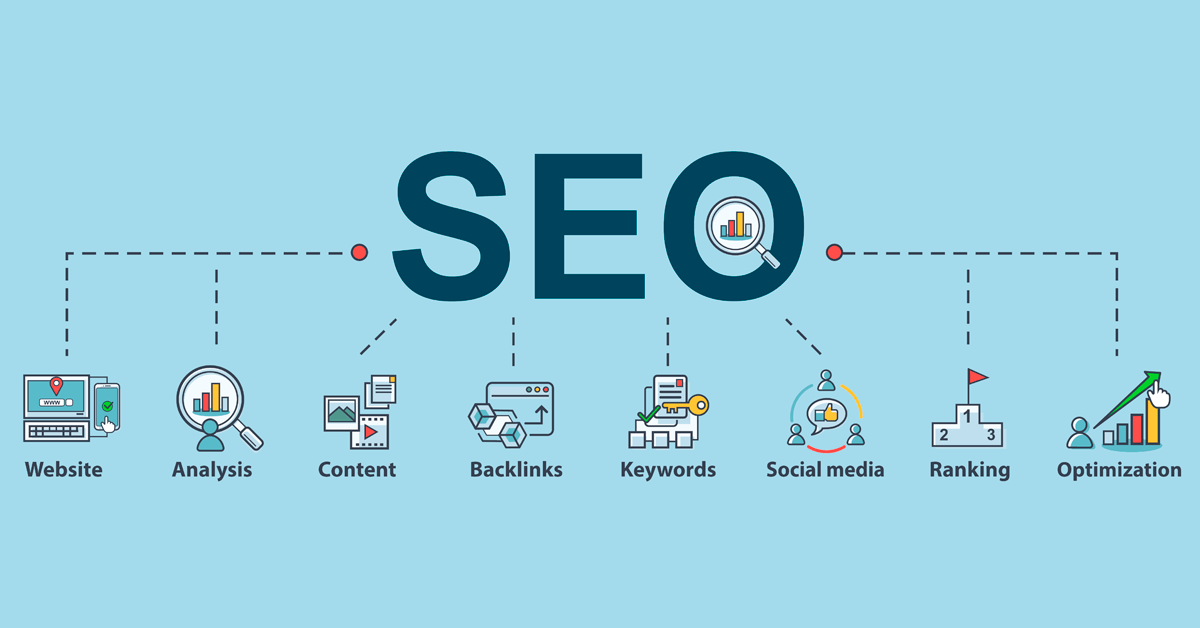In today’s digital landscape, where competition is fierce and attention spans are short, having a well-optimized website is essential for attracting organic traffic and improving your online visibility. Search Engine Optimization (SEO) is the driving force behind achieving higher rankings in search engine results pages (SERPs), and it plays a pivotal role in generating targeted organic traffic. In this comprehensive guide, we will delve into the intricacies of website SEO and provide you with actionable strategies to propel your website’s ranking to new heights.
Conduct Thorough Keyword Research
Keyword research forms the foundation of any successful SEO campaign. By identifying the right keywords and phrases that align with your website’s content and target audience’s search intent, you can optimize your website accordingly. Utilize keyword research tools like Google Keyword Planner, SEMrush, or Moz Keyword Explorer to identify high-volume, low-competition keywords. Incorporate these keywords naturally into your website’s content, titles, meta descriptions, headings, and image alt tags.
Optimize On-Page Elements
On-page optimization involves optimizing various elements on your website to enhance its visibility to search engines. Focus on the following aspects:
a. Title Tags: Craft unique, keyword-rich titles (around 60 characters) that accurately describe the content of each page.
b. Meta Descriptions: Write compelling meta descriptions (around 160 characters) that entice users to click through to your website.
c. URL Structure: Create user-friendly, descriptive URLs that incorporate relevant keywords and make it easier for search engines and users to understand your page’s content.
d. Header Tags: Use H1, H2, and H3 tags to structure your content hierarchically and improve readability. Include relevant keywords in your headers to signal the topic to search engines.
e. Image Optimization: Compress and resize images without compromising quality to enhance page load speed. Add descriptive alt tags to images for improved accessibility and keyword optimization.
Also Read this: https://thedurandtimes.com/technology-rank-your-website-on-google/
Also Read this: https://www.linkedin.com/pulse/seo-search-engine-optimization-sagar-khurana
Develop High-Quality, Engaging Content
Creating high-quality, informative, and engaging content is paramount for both users and search engines. Follow these guidelines:
a. Unique and Relevant Content: Produce original, well-researched content that provides value to your target audience. Avoid duplicate or thin content, as it can harm your rankings.
b. Keyword Placement: Integrate target keywords naturally within your content to improve relevance and visibility. Aim for a keyword density of around 1-2%.
c. Readability and Formatting: Use subheadings, bullet points, and short paragraphs to break up content and make it easier to read. Incorporate relevant multimedia elements, such as images, videos, and infographics.
d. Internal and External Linking: Include internal links to other relevant pages on your website to enhance navigation and encourage users to explore further. Additionally, link to reputable external sources to provide additional value and authority to your content.
Enhance User Experience (UX)
User experience is a crucial factor that influences your website’s SEO performance. Consider the following aspects to improve UX:
a. Page Speed Optimization: Optimize your website’s loading speed by minimizing file sizes, leveraging browser caching, and utilizing content delivery networks (CDNs).
b. Mobile Responsiveness: Ensure your website is mobile-friendly and offers a seamless experience across different devices. Mobile-friendliness is a significant ranking factor in search engine algorithms.
c. Intuitive Navigation: Design a clear and user-friendly navigation structure that allows visitors to find information effortlessly. Implement breadcrumbs, site maps, and intuitive menus.
d. Clear Call-to-Actions (CTAs): Encourage user engagement by incorporating clear CTAs throughout your website. Use persuasive language and compelling visuals to prompt users to take desired actions.
Build High-Quality Backlinks
Backlinks are a vital aspect of off-page SEO and serve as a vote of confidence for search engines. Focus on acquiring high-quality backlinks from authoritative and relevant websites in your industry. Some effective strategies to build backlinks include:
a. Guest Blogging: Contribute informative and valuable articles to reputable websites in your niche. Include a link back to your website within the author bio or content, ensuring it flows naturally.
b. Outreach and Networking: Reach out to industry influencers, bloggers, and website owners to establish relationships and request backlinks. Offer to provide valuable content or collaborate on projects to increase your chances of acquiring backlinks.
c. Content Promotion: Share your content on social media platforms, industry forums, and online communities to attract attention and encourage others to link to your content.
d. Directory Listings: Submit your website to relevant online directories and listings. Focus on directories that have high domain authority and are reputable within your industry.
Monitor and Analyze Performance
To gauge the effectiveness of your SEO efforts and make data-driven decisions, it’s crucial to monitor and analyze your website’s performance. Utilize tools like Google Analytics, Google Search Console, or third-party SEO platforms to track key metrics such as organic traffic, keyword rankings, bounce rates, and conversion rates. Regularly review these metrics, identify trends, and make necessary adjustments to your SEO strategy.
Stay Updated with Algorithm Changes
Search engine algorithms undergo regular updates, and staying abreast of these changes is essential to maintain and improve your website’s ranking. Follow reputable SEO blogs, forums, and industry experts to stay informed about algorithm updates, best practices, and emerging trends. Adapt your SEO strategies accordingly to align with the evolving search engine landscape.
Conclusion
Mastering website SEO and achieving high search engine rankings is a multifaceted endeavor that requires a comprehensive approach. By conducting thorough keyword research, optimizing on-page elements, creating high-quality content, enhancing user experience, building authoritative backlinks, monitoring performance, and staying informed about algorithm changes, you can position your website for success. Implement the strategies outlined in this guide, and watch as your website climbs the search engine ranks, attracting targeted organic traffic and driving business growth in the digital realm.

